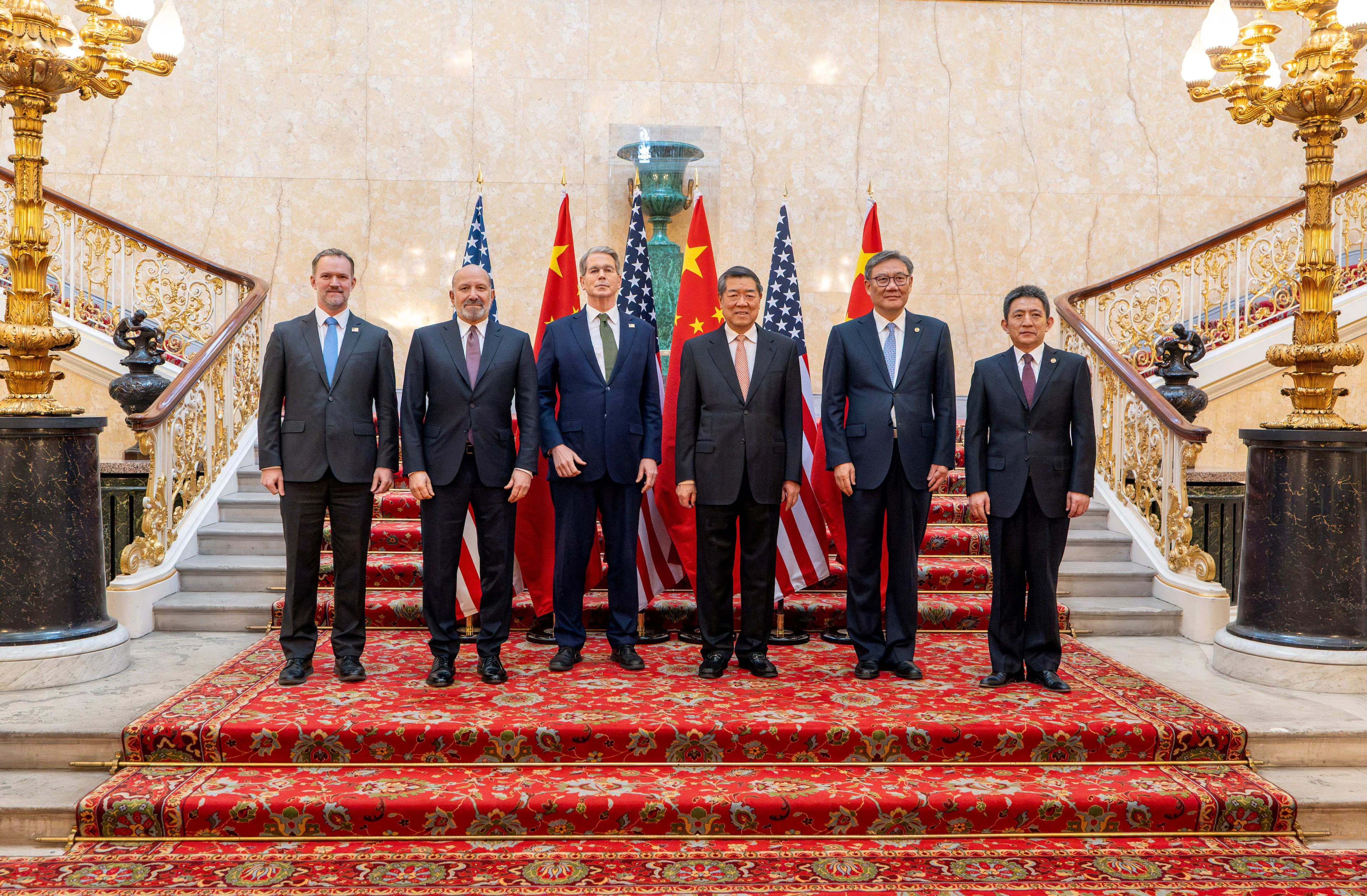Catch up on the key stories and developments shaping the financial world.
Q4 profit surge for US companies, but tariffs and slow growth pose risks; OECD warns rising debt could strain global markets; Rise of defence-focused ETFs.
For more on the World Economic Forum’s work in finance, visit the Centre for Financial and Monetary Systems.
세계경제포럼, 2025년 4월 1일 게시
Rebecca Geldard
Senior Writer, Forum Stories

1. US profit growth faces headwinds from tariffs and economic slowdown
US corporate profits surged in the fourth quarter, rising by $204.7 billion, according to the Commerce Department’s Bureau of Economic Analysis. However, this recovery may not signal sustained growth, warns Reuters, as tariff uncertainty and a slowing economy pose challenges for businesses and consumers in early 2025.
It comes after President Trump imposed a 25% levy on imported vehicles to the US, effective 2 April, impacting stocks, auto production and intensifying the “tariff spiral”.
Global stocks tumbled on 31 March, and gold hit a record high after President Trump said tariffs would apply to all countries, fuelling recession fears. Asian and European stocks, along with US futures, plunged after the president said there would be an announcement about global reciprocal US tariffs on 2 April, deepening last week’s sell-off.
Meanwhile, the Federal Reserve’s recent decision to hold interest rates reflects ongoing economic uncertainty.
The profit increase has been attributed to pre-emptive stockpiling, temporarily boosting consumer demand. However, as higher import prices take effect, businesses and consumers may face rising costs.

US consumer confidence is its lowest level for four years.Image: Reuters/LSEG
Confidence in both sectors has already dipped, the latest data show. Early Q1 GDP growth estimates now fall below 1.5%, driven by slower consumer spending and more cautious corporate investment.
2. OECD: Soaring global debt heightens risks for markets and growth
Governments and companies worldwide borrowed $25 trillion in 2024, according to the OECD. The surge, nearly three times the amount borrowed in 2007, signals potential challenges as rising borrowing costs and market volatility threaten future borrowing capacity.
In its Global Debt Report 2025, the OECD highlights the growing risks for investors, governments and businesses amid a more expensive debt environment, with higher refinancing risks and limited capacity for long-term productive investments.
- Record borrowing: $25 trillion borrowed globally in 2024, up $10 trillion annually from pre-COVID levels.
- Debt-to-GDP risks: Central government debt-to-GDP ratio in OECD countries set to rise to 85% by 2025, increasing financial pressure.
- Higher borrowing costs: Rising interest payments mean more strain on government budgets and corporate debt servicing, with implications for credit markets.
- Refinancing risks: Nearly 45% of sovereign debt in OECD countries will mature by 2027, increasing refinancing challenges for issuers.
- Corporate debt trends: Corporate bond debt reaches $35 trillion, yet much of this has funded financial operations, not productivity-boosting investments.
- Climate transition investment: Rising debt levels threaten the ability of both public and private sectors to meet climate financing needs.
“Sovereign and corporate debt levels continue to grow across the world, at a time of increasing borrowing costs and market volatility,” said OECD Secretary-General Mathias Cormann. “Increasing the efficiency of public spending and prioritizing productivity-enhancing investments will contribute to improving debt prospects.”
3. More finance news to know
Gold has surged over 18% this quarter, its biggest gain since 1986, Reuters reports, driven by rate cut bets, central bank buying, and exchange-traded fund (ETF) demand, prompting banks to raise 2025 forecasts.
Asset managers are increasingly launching ETFs focused on Europe’s defence sector, driven by a recent rally and growing military spending in the region. But Europe’s push for self-reliance is also creating investment opportunities beyond defence stocks.
Countries across Asia, Europe and North America are warning of potential retaliation against Trump’s proposed 25% car tariffs. The US is expected to impose reciprocal tariffs on its trading partners, raising concerns of a global trade war, reports the Financial Times.
China’s Finance Ministry will invest $69 billion in four major state banks through share placements to bolster capital. Bank of Communications, Bank of China, Postal Savings Bank and China Construction Bank plan to raise up to $72 billion, with the ministry being the largest investor. This move follows recent stimulus measures aimed at supporting the economy, despite banks already exceeding capital requirements.
Bank of America reported an 80% increase in mortgage applications between January and March, its consumer lending executive said. The surge was attributed to more homes on the market and lower long-term bond yields, which attracted more buyers.
UK pension reforms may help shield the gilt market from a projected £500 billion bond selloff, Abdallah Nauphal, CEO of Insight Investment, told Bloomberg. Chancellor Rachel Reeves’ plan to allow pension surpluses to be reinvested into businesses could slow insurers’ takeover of pension plans, easing bond market pressure.
4. Read more on Forum Stories
Geopolitical tensions and macroeconomic challenges are threatening global financial unity, but international financial centres are key to fostering global connections. Carlson Tong, Chairman of Hong Kong Exchanges and Clearing, explains how the region’s market developments offer a model for building resilient, sustainable financial ecosystems.
Tong’s article was published as part of the Centre for Financial and Monetary Systems 2025 Symposium. The symposium, which took place 26 March in Hong Kong SAR, convened global leaders to drive action on critical issues and strengthen financial resilience in the Intelligent Age.
Grocery data provides valuable insights into an individual’s financial habits and status, offering a way to assess credit scores for those without a credit history. This article explains how leveraging AI and privacy-enhancing technologies can enable banks and grocers to play a key role in enhancing financial inclusion.
Stablecoins, pegged to assets like fiat currencies or gold, offer price stability, making them a preferred medium of exchange over other cryptocurrencies. However, they are not without risk, especially amidst regulatory uncertainty and transparency concerns.

